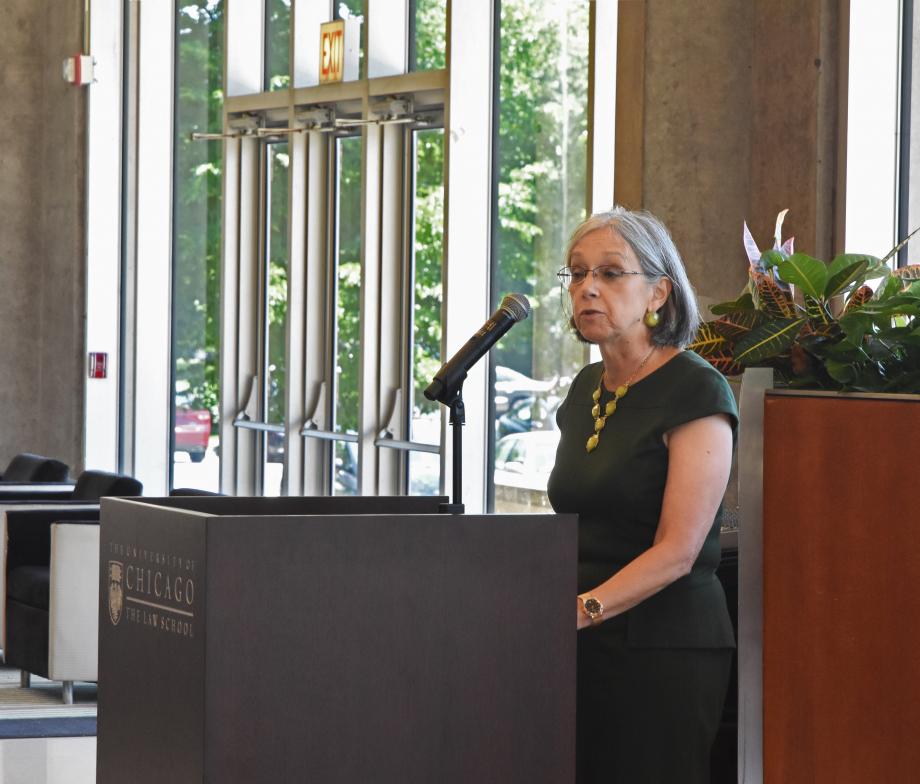Seventh Circuit Chief Judge Diane Wood Addresses Business Law Scholars

During a recent keynote speech at the University of Chicago Law School, Senior Lecturer Diane P. Wood, Chief Judge of the US Court of Appeals for the Seventh Circuit, told business law scholars that she thinks the courts might have more to say in the future about how antitrust law should be applied to foreign cartels.
Her talk, which focused on the concept of enterprise liability and its role in international antitrust law, was part of the seventh annual National Business Law Scholars Conference, an event that draws legal scholars from across the country. Anthony J. Casey, Professor of Law and Mark Claster Mamolen Teaching Scholar, organized this year’s conference.
Wood focused on the Seventh Circuit’s 2015 decision in Motorola Mobility LLC v. AU Optronics, in which the mobile phone giant claimed that a foreign supplier had sold price-fixed LCD panels to Motorola affiliates overseas. The Seventh Circuit affirmed a lower court finding that almost all of the claims fell outside the scope of US antitrust law—rejecting Motorola’s position that overcharges paid by its foreign subsidiaries became a domestic injury when they were passed along in higher cellphone prices, including in phones that were built overseas but eventually sold in the US. (The appeals court ruled that Motorola could only seek damages in 1 percent of cases where the displays were shipped directly to the US). The US Supreme Court later denied certiorari in the case.
Wood said that although enterprise liability was not “squarely addressed” in the Motorola Mobility petition, she said future cases may give the courts a chance to further consider how US antitrust law applies to international trade involving multi-national corporate families, including when price-fixed products are imported to the US through an intermediary.
“The question isn’t whether we have enterprise liability at all, it’s where do we have it, what are the tests, how do we use the concept, and … whether it has any place in antitrust law,” Wood said.
The two-day conference included sessions on lending regulation, business bankruptcy, social responsibility, mergers and acquisitions, insider trading, securities litigation, whistleblowers, and more.
“The conference is a great way to bring together a mix of junior and senior business law scholars and provide an atmosphere of learning and mentoring,” Casey said. “With this focus for the conference, it was especially fitting to have Judge Wood speak. She has been an intellectual leader in the field of business law, a tremendous teacher and mentor to a generation of lawyers and scholars (including myself), and she obviously brings a depth of real-world knowledge that only a judge of her caliber and experience can.”